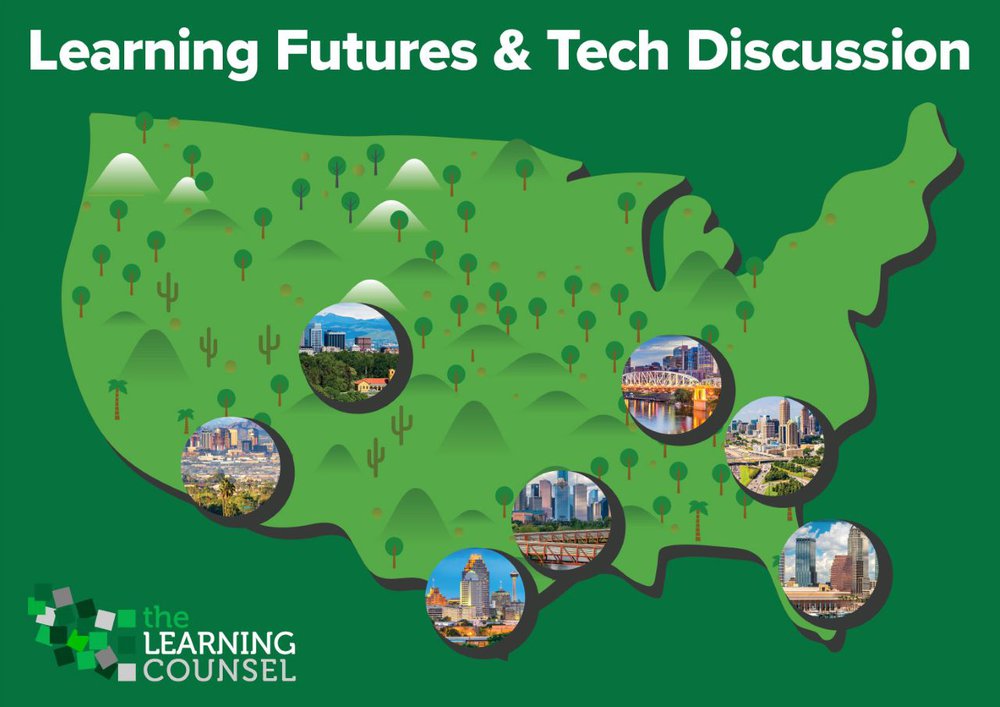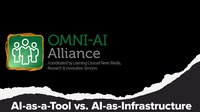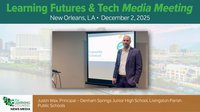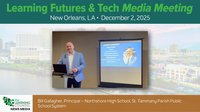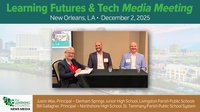In a recent webinar, LeiLani Cauthen, CEO of the Learning Counsel, presented a recap of their Spring 2025 Meetings. She covered various topics like the future of teaching and learning—facing head-on the changing needs of Generation Alpha, the disruptive force of AI, and the growing urgency to redefine what it means to be human in a tech-dominated era.
Gen Alpha: The Scroll Generation
The day’s next major theme? Generation Alpha—today’s youngest learners and tomorrow’s workforce. As LeiLani put it, “They’re on a different channel altogether.” With ultra-short attention spans, a deep immersion in their devices, and a digital-first view of the world, this new generation is reshaping the foundational assumptions of classroom instruction.
Panelists and participants alike acknowledged that traditional lecture-style teaching is increasingly ineffective. Instead, Gen Alpha thrives on rapid interaction, personalization, visual storytelling, and immediacy. “You’re not just competing with other educators,” one attendee noted, “you’re competing with YouTube, TikTok, and AI chatbots.”
Insights from Research and Real Talk
The Learning Counsel introduced a mix of thought-provoking research and peer insights, driving collaborative discussion among attendees. A centerpiece of this year’s dialogue was the unveiling of a reimagined framework inspired by Gartner’s nine types of intelligence—revised through a blend of human expertise and AI insight.
These new intelligence domains resonated with educators, many of whom spent significant time unpacking what they mean for teaching and assessment. From emotional reasoning to spatial intuition and systems thinking, the revised model is pushing leaders to think beyond academic performance toward holistic human capability.
The Human Singularity: A New Paradigm
A key highlight of the meeting was the debut of Learning Counsel’s new book, The Human Singularity. The work challenges prevailing narratives about AI dominance and instead proposes a more grounded, balanced future—one where educators leverage artificial intelligence without losing the essence of what makes us uniquely human.
Drawing from the book, Cauthen shared the concept of a core “human mental algorithm” and the importance of recognizing our innate, living intelligence. “At the heart of this,” she explained, “is the undeniable truth: we are alive. Machines are not. And that matters—deeply.”
The Learning Counsel identified five distinct characteristics that define life and separate us from even the most sophisticated AI. These insights provided a philosophical grounding for the more technical parts of the discussion.
AI: More Than Just a Chatbot
One of the most eye-opening segments was a guided walkthrough of the current AI landscape. Cauthen clarified that AI is far more than just generative text models embedded into EdTech platforms. She mapped out the genesis of AI—from layered mathematical models to multi-modal systems that can perceive, reason, and even simulate.
But the next major wave, she predicted, will be agentic AI—systems that act on your behalf. Think: AI that reads and responds to your email in your voice, schedules meetings, or even curates individualized learning plans for students without direct input.
Attendees were encouraged to prepare not just their technology ecosystems, but also their leadership cultures and instructional strategies for this coming wave.
Old Workflow vs. New Workflow: A Vision Shift
Another highlight was a comparison between the traditional school workflow and the modern, optimized alternative. The old model—rigid, hierarchical, and paper-heavy—is giving way to dynamic, personalized, and fluid structures enabled by technology and fueled by data.
Participants explored how shifting these workflows affects everything from classroom delivery to curriculum design and administrative operations. The conversation made clear that innovation is no longer optional—it’s essential for staying relevant and effective.
Balancing Technology with Humanity
Throughout the webinar, one theme persisted: while AI can support, personalize, and scale education, it cannot replace the relationships, empathy, and purpose that educators bring. The challenge is not just to adopt technology but to humanize it—to ensure that the learning experience remains deeply personal, profoundly meaningful, and fundamentally alive.
Closing the Loop
Surveys, sponsor showcases, and spontaneous roundtable conversations kept the momentum strong throughout the Spring. Participants left not just with new tools and frameworks, but with a renewed sense of mission—and a growing awareness of what’s coming next.
The Learning Counsel’s Learning Futures & Tech Media Meeting Spring Tour was more than a conference—it was a call to action. As Gen Alpha enters the system and AI reshapes the rules, school leaders must now rise to meet a new kind of moment: one defined not by what machines can do, but by what only humans should do.
Tune in below to watch the full webinar.

